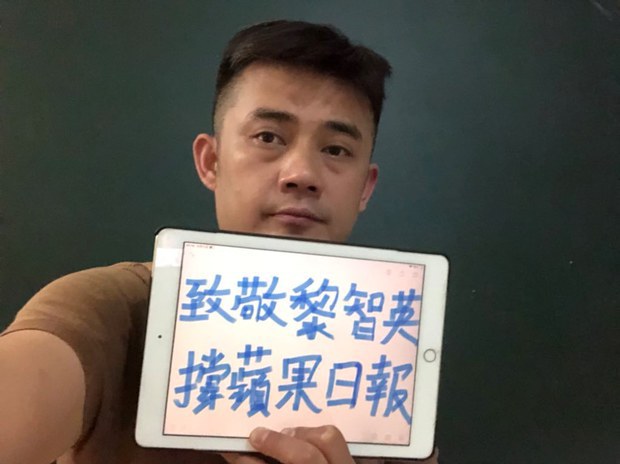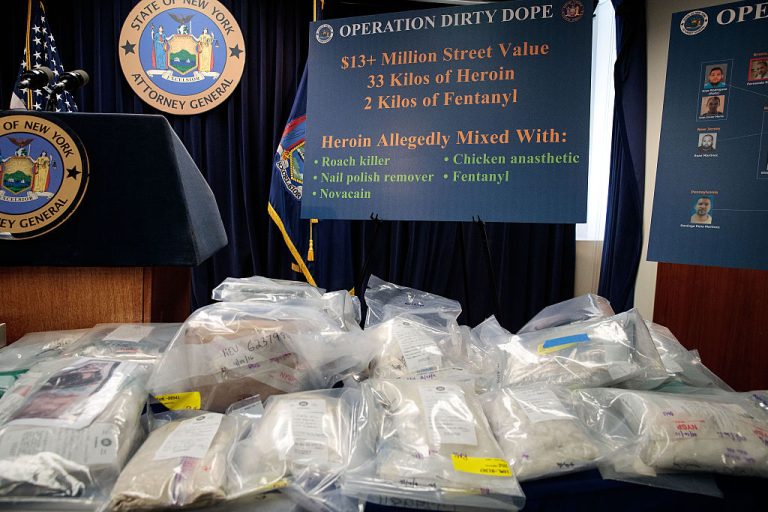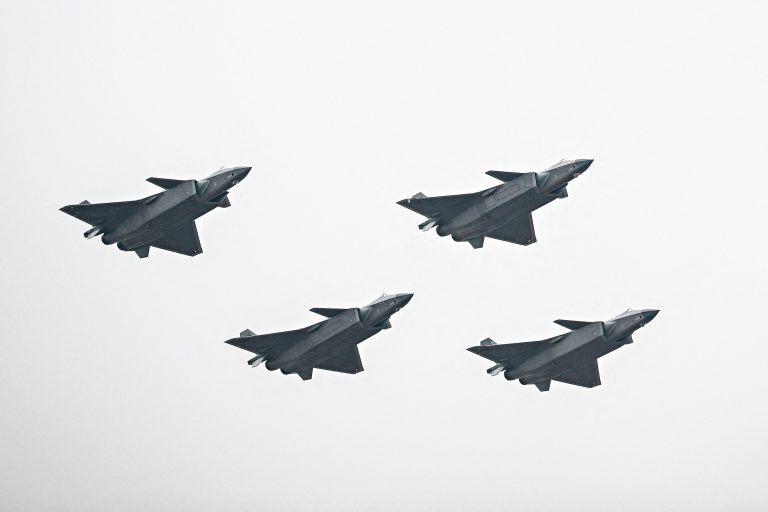Authorities in China’s central Hunan Province have held a secret trial for jailed activist Ou Biaofeng. Ou was first arrested for publicly supporting the pro-democracy movement in Hong Kong.
Ou was charged with “inciting subversion of state power,” an offense punishable to life in prison, for retweeting a video of Dong Yaoqiong, known as “ink girl,” in December 2020.
According to Ou’s wife Wei Huanhuan, her husband was first placed into “administrative detention” for 15 days over charges of “picking quarrels and provoking trouble” after he showed support for Dong, who earned her nickname after defacing a poster of leader Xi Jinping in 2018.
On Dec. 18 2020, the day before Ou’s scheduled release, his wife was told by police that he had been placed under “residential surveillance at an undisclosed location” according to a post she made on Twitter. Their house was then searched by police who confiscated computers and other valuables from the couple’s home.
Radio Free Asia (RFA) reported that Ou stood trial behind closed doors in Hunan’s Zhuzhou city on Jan. 27, over a year after his initial arrest. The trial was held inside the Zhuzhou No. 1 Detention Center, where Ou is currently being detained.
Vocal supporter of Hong Kong
Success
You are now signed up for our newsletter
Success
Check your email to complete sign up
Prior to his arrest, Ou had been a vocal supporter of the pro-democracy movement in Hong Kong. He publicly supported the 2014 Occupy Central campaign for universal suffrage, which later became known as the Umbrella Movement.
READ MORE:
- Disappeared: The Faces of Human Rights Activists Silenced by Communist China
- Lawyer Xie Yang Detained by Chinese Secret Agents After Multiple Bouts of Torture and Harassment
Ou also continued his activist work in support of the 2019 anti-extradition movement – a series of protests that saw hundreds of people take to the streets to demand democracy and accountability for police violence against Hong Kong citizens. The movement rallied for the end of an extradition law which mandated that Hong Kong and Taiwanese citizens be sent back to mainland China to stand trial.
In addition, The National Security Law, which was imposed by Beijing on Hong Kong in June 2020 mandates a maximum of life imprisonment for speaking out against the Chinese regime or other expressions “deemed dangerous.”
However, Ou believed this law contradicted the 1984 Sino-British Joint Declaration – whereby China promised to guarantee Hong Kong’s civil liberties for at least 50 years after the UK returned the city back to Chinese sovereignty.
Denied from hiring lawyer of his choice
Despite tight security around the facility, two people managed to break through a group of armed security guards to display a banner and video in support of Ou.
Ou’s wife also said she wasn’t allowed to attend the trial and that several security officers were patrolling her building that day to make sure she did not leave her home.
“Apparently the trial was held in a court inside the detention center, and it wasn’t open to the public,” Wei told RFA. “They wouldn’t let family members in as observers, because of the pandemic.”
“But they also said family members couldn’t attend because of the nature of the case,” she said, adding that police told her Ou wasn’t being singled out and his trial was “standard government procedure.”
Wei said Ou was represented by a government lawyer appointed to him, whom she described as “very passive.”
“We repeatedly tried to negotiate with the state security police, but they kept saying that these were Ou Biaofeng’s wishes,” she said. “We had been hoping to hire a lawyer of the kind we trust … but Ou Biaofeng had been inside for so long that … he had no choice but to compromise [with police demands].”
Wei told RFA about the challenges in finding a good human rights attorney willing to take on a dissident’s case in China due to potential retaliation from the government. The Chinese regime has been known to arrest, imprison and even torture activists and lawyers for helping disefranshised and marginalzed groups in the country.
“The lawyers are themselves under political pressure, with some law firms putting pressure on them not to represent [Ou], so they were unable to get involved,” she said. “Even if they wanted to take the case, the authorities would find a way [to obstruct them].”
According to RFA, the lawyer appointed to represent Ou was unavailable for comment last week.















